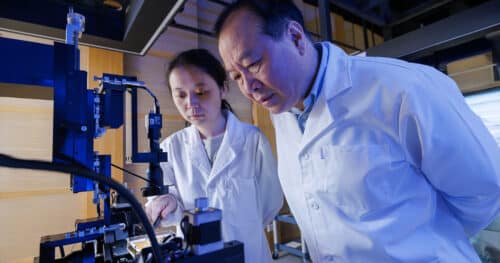Researchers at PolyU have introduced a quantum microprocessor chip for simulating molecular spectroscopy in complex molecules, a global first.

Quantum simulation allows researchers to investigate complex systems that are too challenging for classical computers to handle, with applications in fields such as financial modeling, cybersecurity, pharmaceuticals, AI, and machine learning. For example, simulating the molecular vibronic spectra, crucial for molecular design and analysis, has been a long-standing computational challenge beyond the capabilities of conventional supercomputers. Efforts are underway using quantum computers and algorithms to simulate these spectra, but accuracy issues and inherent noise limit simulations to simpler molecular structures.
Researchers at The Hong Kong Polytechnic University (PolyU) have introduced a quantum microprocessor chip designed for the simulation of molecular spectroscopy for large and complex molecules—a pioneering achievement worldwide.
The research team, including members from Nanyang Technological University, City University of Hong Kong, Beijing Institute of Technology, Southern University of Science and Technology, the Institute of Microelectronics, and Chalmers University of Technology in Sweden, has developed a 16-qubit quantum microprocessor chip. This chip is part of a comprehensive system that includes optical-electrical-thermal packaging and a fully programmable control module and software, paving the way for significant advancements in quantum chemistry and computational applications that surpass classical computing abilities.
Quantum technology, facilitated by such innovative hardware, holds promise in numerous scientific areas, including materials science, chemistry, and condensed matter physics. The team’s research not only advances the field of quantum computing but also opens up new possibilities for applications such as molecular docking and quantum machine learning techniques like graph classification.
This development marks a significant step forward in quantum technology, positioning the team’s work as a potential game-changer in the realm of quantum computing applications. The content of this announcement is solely the responsibility of the issuer.








